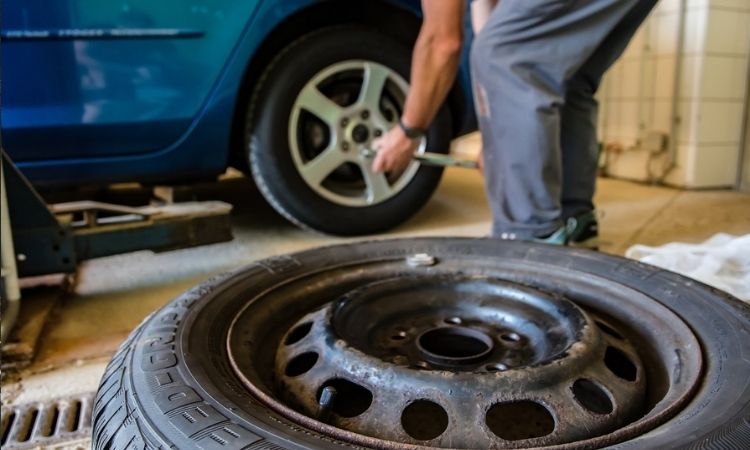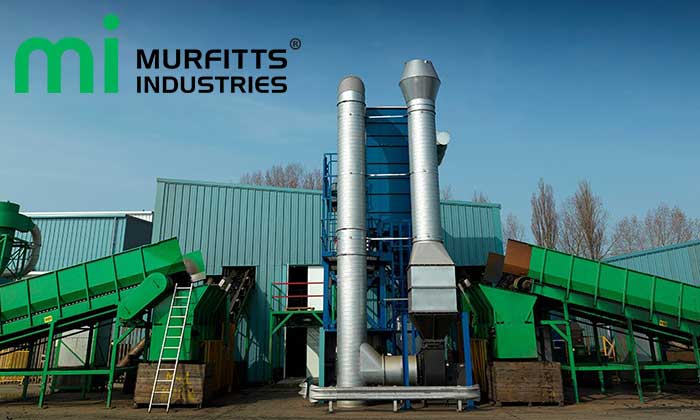TNU on the new waste law and its impact on end-of-life tires recycling
On April 22, the experts related to the tire and recycling sector met at a Forum to discuss "The new waste law and its impact on the recycling of end-of-life tires" organized by TNU within the framework of the Motortec Madrid 2022.
Javier de Jesús Landesa, Operational Director of TNU, Fernando Burgaz, Head of the Subdirectorate General Area for Circular Economy of the D.G. of Quality and Environmental Evaluation of MITECO, and Óscar Bas, Executive Secretary of ADINE (Association of Tire Distributors and Importers) contributed their different points of view in relation to several questions raised by Chema Bermejo, a journalist specialising in the automotive industry, who was the moderator of this interesting debate.
The forum began with the intervention of Javier de Jesús Landesa, giving his point of view about how the new waste law will affect the recycling sector : “The new waste law is clearly aimed at encouraging recycling, recovery, and the reuse in general, not only of the tire, penalizing or sanctioning other methods of recovery such as energy or disposal, then it will clearly improve the current situation with tires in terms of its recyclability and recovery "
Regarding the publication of Royal Decree 731/2020, which modified the regulations of the management of end-of-life tires since 2005, Fernando Burgaz explained: “Between the years 2018-2019, managers, producers and administrations themselves at the level of each autonomous community verified the existence of imbalances and problems in the operation of management in general. So at that time, what was established as appropriate was to carry out a specific review of the regulations that regulate the management of end-of-life tires, identifying a series of points as priorities for their modification . That is what was introduced in this Royal Decree, and really our impression is that these improvements or changes have been positive, and have solved the problems, concerns or difficulties that have been registered in recent years.”
Regarding the Royal Decree 731/2020, the representative of MITECO added: "It has brought important changes, such as the incorporation of large tires, those with a diameter of more than 1,400 mm, into the management system , with which all the tires that are generated are already managed through common procedures. The responsibility that corresponds to the producers was also redefined , clarifying that they are also involved in the prevention and management of waste , and in the case of tires through collective systems. An information system has been established so that all operators, managers, and anyone interested in managing end-of-life tires have public access to it. The operation of the Authorized Treatment Centers (CAT) was clarified , in terms of tire management, that is, a series of improvements were introduced that were thoroughly analyzed and agreed upon, and that we are really quite satisfied with the results we are seeing in these last 2 years.
Óscar Bas then assessed the introduction of this new law from ADINE's experience: " We are happy with the new waste law, although it is also true that in terms of distribution level practically nothing has been touched that had been legislated, published or established in the previous law 22/2011 that was preceded by the previous directive of 2018.”
The executive secretary of ADINE adds: "Another of the proposals that the Ministry has taken into consideration and of which we are pleased, is the tightening of the measures against fraud that affected us very directly , since we saw that producers imported or put on the tire market without contributing to its environmental and financial obligations. In this sense, with the proposals and campaigns that we carry out from ADINE together with the Integrated Management Systems: Signus and TNU, the administration increased the sanctioning regime. In the previous law 22/2011, the penalties for an infraction of any kind were stipulated from 901 to 45,000 Euros depending on proportionality. In this sense, right now with the modification that the ministry has made in the sanctioning power, if a producer of the product fails to comply with his obligations and the benefit he obtains is much greater than the sanction imposed on him, his sanction may be doubled in double the benefit. that you have obtained. This is important to highlight in the sense that many companies will no longer be able to skip the law”.
Another novelty of the Law is that it allows, through the new definition of producer, to regulate the online purchase of tires, which is one of the fraud flows to be resolved immediately.
If a foreign company sells tires online without complying with environmental responsibilities, it will be the digital vehicle used: Amazon, Aliexpress… etc., who must assume that responsibility. In this way, another path of non-compliance with environmental responsibilities by certain producers is closed.
Another novelty introduced in the new Law that was analysed at the conference is Article 18, which speaks of the prohibition of destroying products considered obsolete and that have not yet expired, which must be donated, sold at a discount, or recycled. A measure that prevents planned obsolescence and that will ensure that perfectly suitable tires do not end up in waste or cement plants.
To read full article, please proceed to TNU website.
Weibold is an international consulting company specializing exclusively in end-of-life tire recycling and pyrolysis. Since 1999, we have helped companies grow and build profitable businesses.









